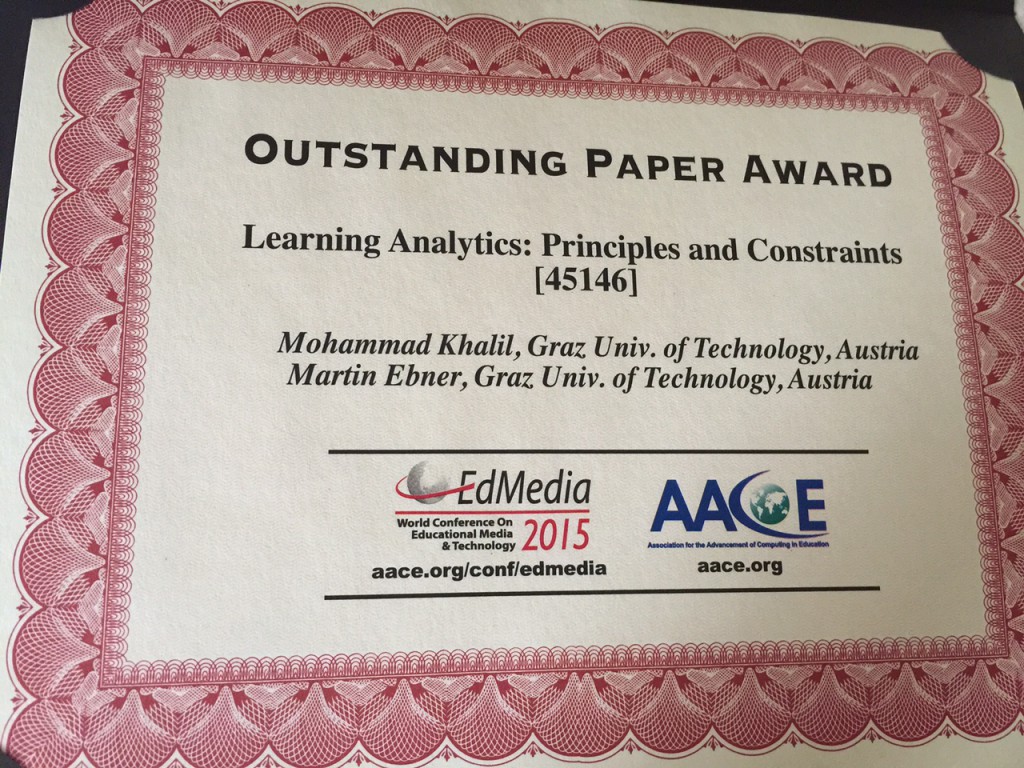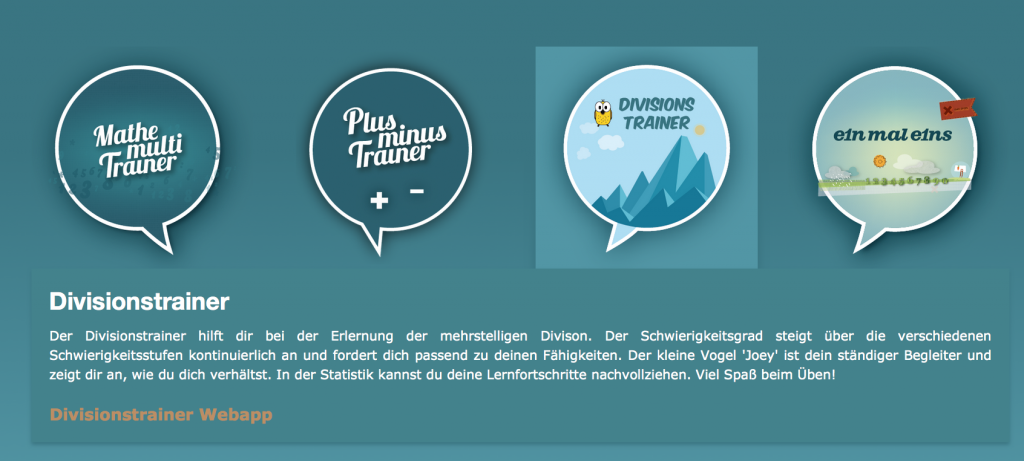Our publication at this year ED-Media 2015 conference „Learning Analytics: Principles and Constraints“ is now online available.
Abstract:
Within the evolution of technology in education, Learning Analytics has reserved its position as a robust technological field that promises to empower instructors and learners in different educational fields. The 2014 horizon report (Johnson et al., 2014), expects it to be adopted by educational institutions in the near future. However, the processes and phases as well as constraints are still not deeply debated. In this research study, the authors talk about the essence, objectives and methodologies of Learning Analytics and propose a first prototype life cycle that describes its entire process. Furthermore, the authors raise substantial questions related to challenges such as security, policy and ethics issues that limit the beneficial appliances of Learning Analytics processes.
[Link to full text]
Reference: Khalil, M. & Ebner, M. (2015). Learning Analytics: Principles and Constraints. In Proceedings of World Conference on Educational Multimedia, Hypermedia and Telecommunications 2015. pp. 1326-1336. Chesapeake, VA: AACE
Finally we feel very honored that we get an „Outstanding Paper Award“ for this research work:



